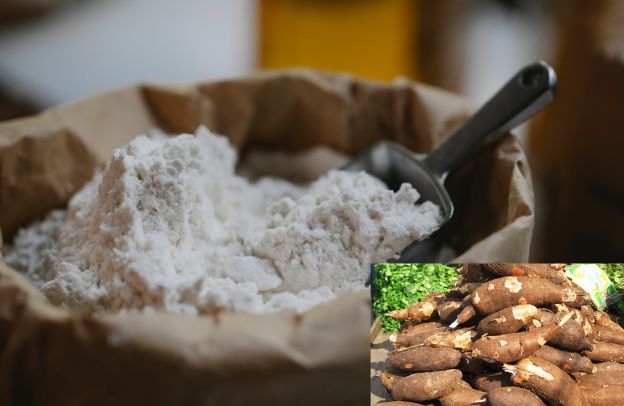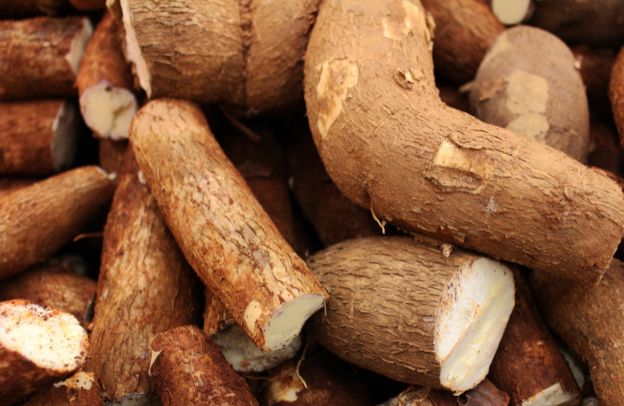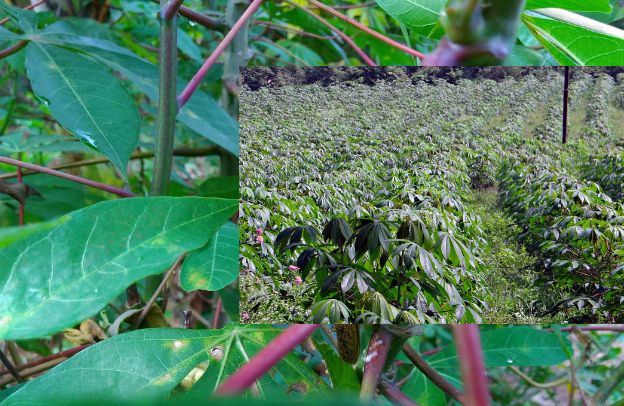Why Do People Consume Cassava? – Uses, Benefits, and More

Have you ever wondered why cassava, a humble root crop, remains a staple food for millions across the world? From bustling Nigerian markets to rural villages in South America and Asia, cassava is a dietary cornerstone, sustaining livelihoods and economies alike. But what makes cassava so widely consumed, and why has it remained an essential part of food security for centuries? The answers lie in its nutritional benefits, versatility, and economic importance.
Learn How to Leverage Your Story through our Story To Asset Transformation (S.A.T) Framework.
Cassava (Manihot esculenta) is a nutritional powerhouse that offers a multitude of health benefits, making it an essential crop for food security and human well-being. Beyond its high carbohydrate content, cassava provides essential nutrients, vitamins, and minerals that support human health, particularly in regions where access to nutrient-rich foods is limited.
Nutritional Profile of Cassava
Cassava is a highly nutritious root vegetable that provides essential energy and nutrients, making it a vital part of the diet in many parts of the world. It offers a balance of carbohydrates, protein, fiber, vitamins, and minerals that support overall health. Below is a breakdown of the key nutrients found in a 100-gram serving of raw cassava:
- 38 grams of carbohydrates: Making it a high-energy food ideal for regions where people engage in physically demanding activities.
- Small amounts of protein: Cassava contains about 1-2 grams of protein per 100-gram serving, making it a valuable source of protein for vegetarians and vegans.
- Fiber: Cassava is a good source of dietary fiber, containing about 2-3 grams per 100-gram serving.
- Vital vitamins: Cassava is a rich source of vitamins C, folate, and thiamine, essential for immune function, cell growth, and energy production.
- Minerals: Cassava contains minerals like potassium, magnesium, and iron, crucial for maintaining healthy blood pressure, bone health, and preventing anemia.
See also: The 5 Healthy Benefits Of Cassava Consumption
Gluten-Free and Nutrient-Rich Leaves
While cassava roots have long been a staple food in many cultures, the leaves of this versatile plant have often been overlooked as a valuable source of nutrition. According to the Science Diet, cassava leaves form a significant part of the diet in some countries, yet they remain underutilized in many others, despite the widespread cultivation of cassava.
Cassava leaves deserve more attention as a source of protein and essential nutrients for human nutrition.
See also Cassava Leaves: Unlocking The Nutritional Power Of Cassava Leaves In Human Nutrition
Unlike the roots, which are low in protein, cassava leaves offer a rich source of this vital macronutrient. Furthermore, they are packed with: about 5-6 grams of protein per 100-gram serving, making them an excellent source of plant-based protein.
- Vitamins A and B: Cassava leaves are rich in vitamins A and B, essential for healthy vision, immune function, and energy production.
- Minerals: Cassava leaves contain minerals like calcium and iron, crucial for maintaining healthy bones and preventing anemia.
A Lifeline for Food Security
Cassava’s ability to thrive in harsh climatic conditions makes it a crucial food security crop, particularly in sub-Saharan Africa, where drought and poor soil conditions threaten agricultural productivity. Unlike many other crops, cassava is:
- Highly drought-resistant: Cassava can survive with minimal water, making it an ideal crop for regions with limited rainfall.
- Flexible harvesting: Cassava can be harvested as needed, providing a reliable source of food throughout the year.
- Affordable and accessible: Cassava is an affordable staple, and its cultivation requires minimal inputs, making it accessible to smallholder farmers.
Reducing Hunger and Malnutrition
For millions of low-income families, cassava is a vital source of nutrition. Its nutritional value, combined with its affordability and accessibility, makes it a crucial crop for reducing hunger and malnutrition in many developing regions. By promoting cassava production and consumption, we can:
- Improve food security: Cassava provides a reliable source of food, reducing the risk of hunger and malnutrition.
- Enhance nutrition: Cassava’s nutritional value, particularly its high carbohydrate content, makes it an essential crop for maintaining energy levels and supporting overall health.
- Support sustainable agriculture: Cassava’s ability to thrive in harsh conditions makes it an ideal crop for promoting sustainable agriculture practices and reducing environmental degradation.
See also: Nigeria’s Agricultural and Agribusiness Potential: A Pathway for African Diaspora Entrepreneurs
Promoting Sustainable Cassava Production
To unlock the full potential of cassava, it is essential to promote sustainable production practices that prioritize environmental stewardship, social responsibility, and economic viability. This can be achieved by:
- Implementing conservation agriculture: Practices like mulching, cover cropping, and crop rotation can help reduce soil erosion, improve soil fertility, and promote biodiversity.
- Using integrated pest management: Techniques like crop rotation, biological control, and cultural control can help reduce the use of chemical pesticides and maintain ecosystem balance.
- Supporting smallholder farmers: Initiatives like training programs, credit facilities, and market access can help smallholder farmers improve their productivity, income, and livelihoods.
Cassava is a nutritional powerhouse that offers a multitude of health benefits, making it an essential crop for food security and human well-being. Its affordability, accessibility, and nutritional value make it a vital source of nutrition for millions of people worldwide.
By promoting sustainable cassava production and consumption, we can improve food security, enhance nutrition, and support sustainable agriculture practices.
Versatility in Food Preparation
Cassava’s widespread consumption is largely due to its remarkable versatility in food preparation. Depending on local traditions and preferences, cassava can be processed into numerous dishes, including:
- Garri: One of Nigeria’s most popular foods, garri is a granular, fermented cassava product often eaten as a porridge or with soup.
- Fufu: A dough-like dish made from boiled and pounded cassava, commonly served with traditional African soups.
- Tapioca: Extracted from cassava starch, tapioca is used in puddings, bubble tea, and various desserts worldwide.
- Cassava Flour: A gluten-free alternative for baking bread, cakes, and other pastries.
- Chips and Snacks: In many countries, cassava is sliced, fried, or roasted into crispy snacks, offering a delicious alternative to potato-based products.
These diverse uses make cassava an indispensable food source, catering to different palates and culinary traditions globally.
See also Cassava Flour: Nigeria’s Hidden Gem in the Surge for Gluten-Free Alternatives
Economic Importance of Cassava
Beyond being a staple food, cassava contributes significantly to economic development in cassava-producing nations. In Nigeria, which is the world’s largest producer of cassava, the crop supports millions of farmers, traders, and processors. The cassava value chain extends beyond subsistence farming to industrial applications, providing raw materials for:
- Animal Feed: Cassava by-products are used in livestock feed, reducing dependence on more expensive grains.
- Biofuel Production: Cassava-based ethanol is emerging as an alternative energy source, contributing to renewable energy solutions.
- Pharmaceuticals: Cassava starch is utilized in drug formulations and as a binding agent in tablets.
By investing in cassava processing and commercialization, many developing economies can enhance rural employment opportunities and generate foreign exchange earnings.
See also: The Economic Benefits Of Cassava Cultivation In Nigeria
The Future of Cassava Consumption
With ongoing research and technological advancements, cassava’s role in global food security is set to expand. Scientists are developing biofortified cassava varieties with higher vitamin A content to combat malnutrition. Additionally, efforts to improve processing methods are reducing the toxicity of raw cassava, making it safer and more convenient for consumption.
As demand for gluten-free and sustainable food sources grows, cassava is poised to play a crucial role in modern diets worldwide. Governments, agribusinesses, and farmers must collaborate to enhance cassava’s productivity and processing capacity, ensuring its continued relevance in the global food system.
Conclusion
From its rich nutritional profile to its economic and cultural significance, cassava is more than just a staple crop—it is a lifeline for millions. Its affordability, versatility, and resilience make it a key player in global food security. As awareness of its benefits grows, more people are incorporating cassava into their diets, unlocking its full potential.
Are you ready to explore the benefits of cassava for yourself? Whether you’re a farmer, a business owner, or simply an adventurous eater, there’s no better time to embrace this remarkable crop. Start today by trying out a cassava-based dish or learning more about how you can contribute to the cassava value chain.
Learn How to Leverage Your Story through our Story To Asset Transformation (S.A.T) Framework.





